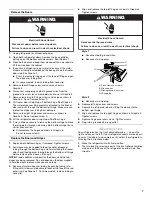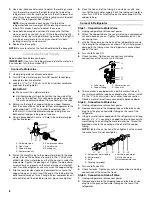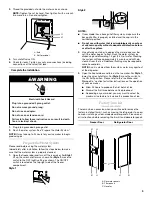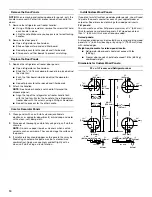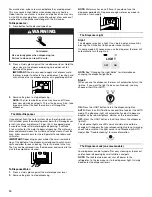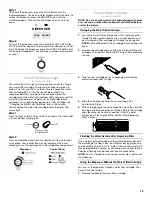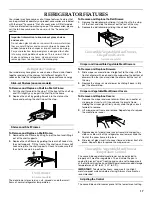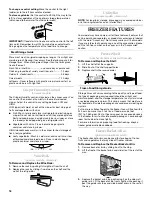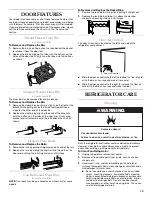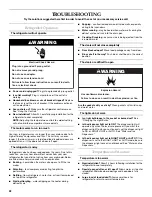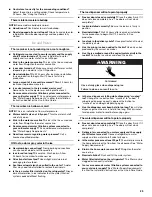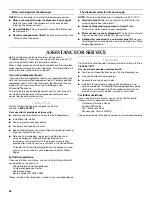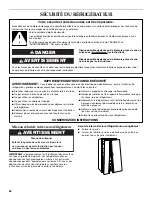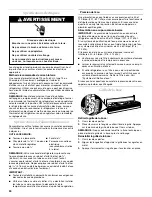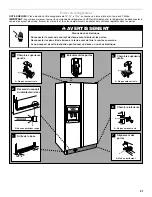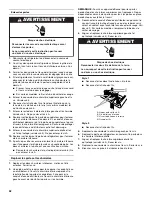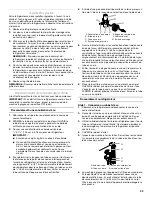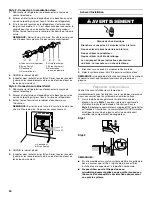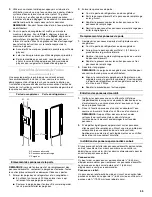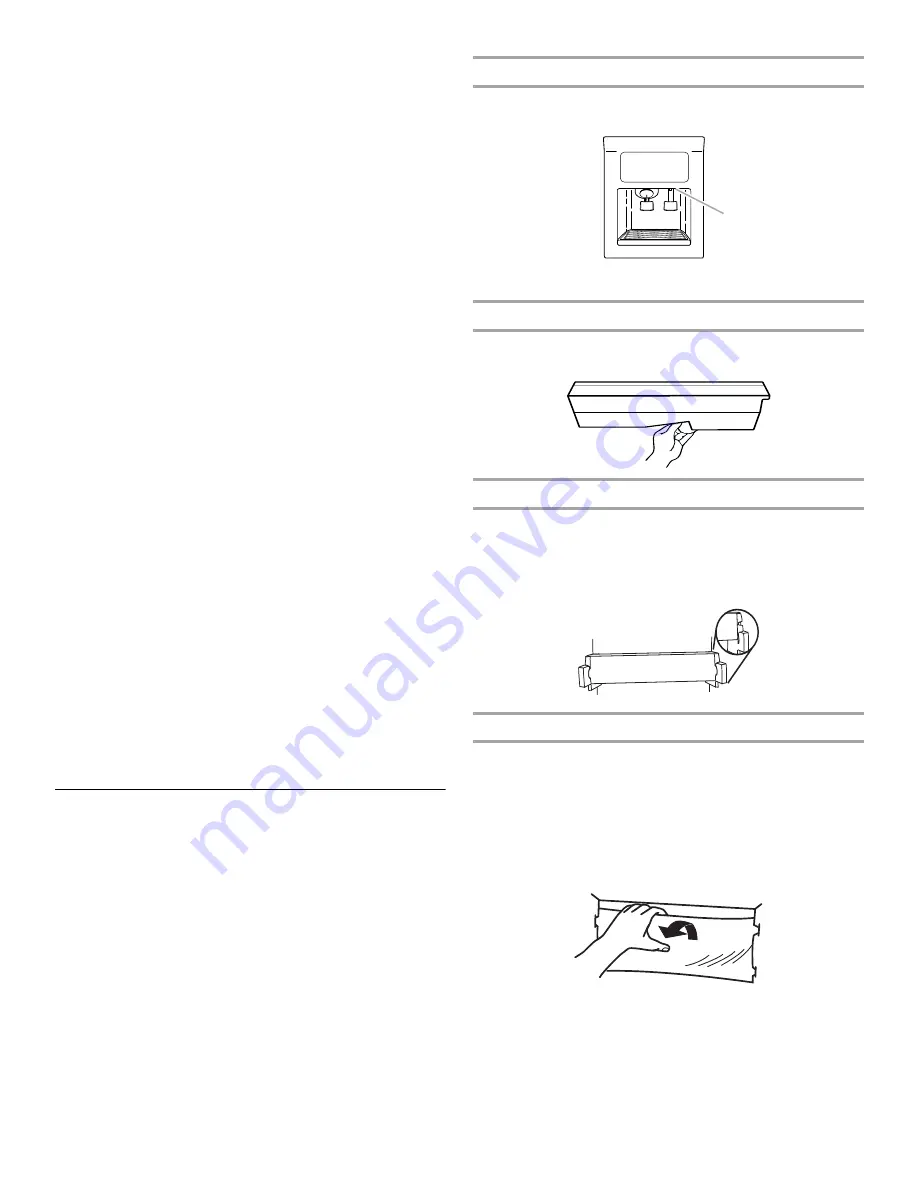
20
■
To help remove odors, you can wash interior walls with a
mixture of warm water and baking soda (2 tbs to 1 qt
[26 g to 0.95 L] of water).
4. Determine whether your refrigerator exterior is painted metal,
brushed aluminum or stainless steel and choose the
appropriate cleaning method.
Painted metal: Wash exteriors with a clean sponge or soft
cloth and a mild detergent in warm water. Do not use abrasive
or harsh cleaners, or cleaners designed for stainless steel.
Dry thoroughly with a soft cloth. For additional protection
against damage to painted metal exteriors, apply appliance
wax (or auto paste wax) with a clean, soft cloth. Do not wax
plastic parts.
Brushed aluminum: Wash with a clean sponge or soft cloth
and a mild detergent in warm water. Do not use abrasive or
harsh cleaners, or cleaners designed for stainless steel. Dry
thoroughly with a soft cloth.
Stainless steel finish: Wash with a clean sponge or soft
cloth and a mild detergent in warm water. Do not use abrasive
or harsh cleaners. Dry thoroughly with a soft cloth.
■
To keep your stainless steel refrigerator looking like new
and to remove minor scuffs or marks, it is suggested that
you use the manufacturer’s approved Stainless Steel
Cleaner & Polish. To order the cleaner, see the
“Accessories” section.
IMPORTANT: This cleaner is for stainless steel parts only!
Do not allow the Stainless Steel Cleaner & Polish to come into
contact with any plastic parts such as the trim pieces,
dispenser covers or door gaskets. If accidental contact does
occur, clean plastic part with a sponge and mild detergent in
warm water. Dry thoroughly with a soft cloth.
5. There is no need for routine condenser cleaning in normal
home operating environments. If the environment is
particularly greasy or dusty, or there is significant pet traffic in
the home, the condenser should be cleaned every 2 to
3 months to ensure maximum efficiency.
If you need to clean the condenser:
■
Remove the base grille. See “Base Grille” graphic or
“Base Grille” section.
■
Use a vacuum cleaner with a soft brush to clean the grille,
the open areas behind the grille and the front surface area
of the condenser.
■
Replace the base grille when finished.
6. Plug in refrigerator or reconnect power.
Changing the Light Bulbs
NOTE: Not all appliance bulbs will fit your refrigerator. Be sure to
replace the bulb with one of the same size and shape. The
dispenser light requires a heavy duty 10-watt bulb. All other lights
require a 40-watt appliance bulb. Replacement bulbs are
available from your dealer.
1. Unplug refrigerator or disconnect power.
2. Remove light shield when applicable as shown.
NOTE: To clean the light shield, wash it with warm water and
liquid detergent. Rinse and dry the shield well.
3. Remove light bulb and replace with one of the same size,
shape and wattage.
4. Replace light shield when applicable as shown.
5. Plug in refrigerator or reconnect power.
Dispenser Light (on some models)
Reach through the dispenser area to remove and replace
light bulb.
Refrigerator Control Panel Light
Reach behind the refrigerator control panel to remove and
replace light bulb.
Crisper Lights
■
If necessary, remove the top crisper drawer to access the
crisper light shield. Remove the light shield by lifting the ends
out of the brackets as shown.
■
Replace the light shield by inserting the ends into the
brackets. If necessary, replace the top crisper drawer.
Upper Freezer Light (on some models)
Style 1
■
Remove light shield by grasping the top center of the shield
and pulling forward while turning it slightly to one side. If
necessary, remove top crisper drawer to gain access to the
crisper light shield.
■
Replace the light shield by inserting the tabs on one end into
the slotted holes in the refrigerator or freezer liner. Then, bend
the shield at the center to insert the tabs on the other end.
Style 2
■
Remove the light shield by squeezing the sides of the light
shield in toward the center while pulling the shield forward as
shown.
A. Dispenser light
A


